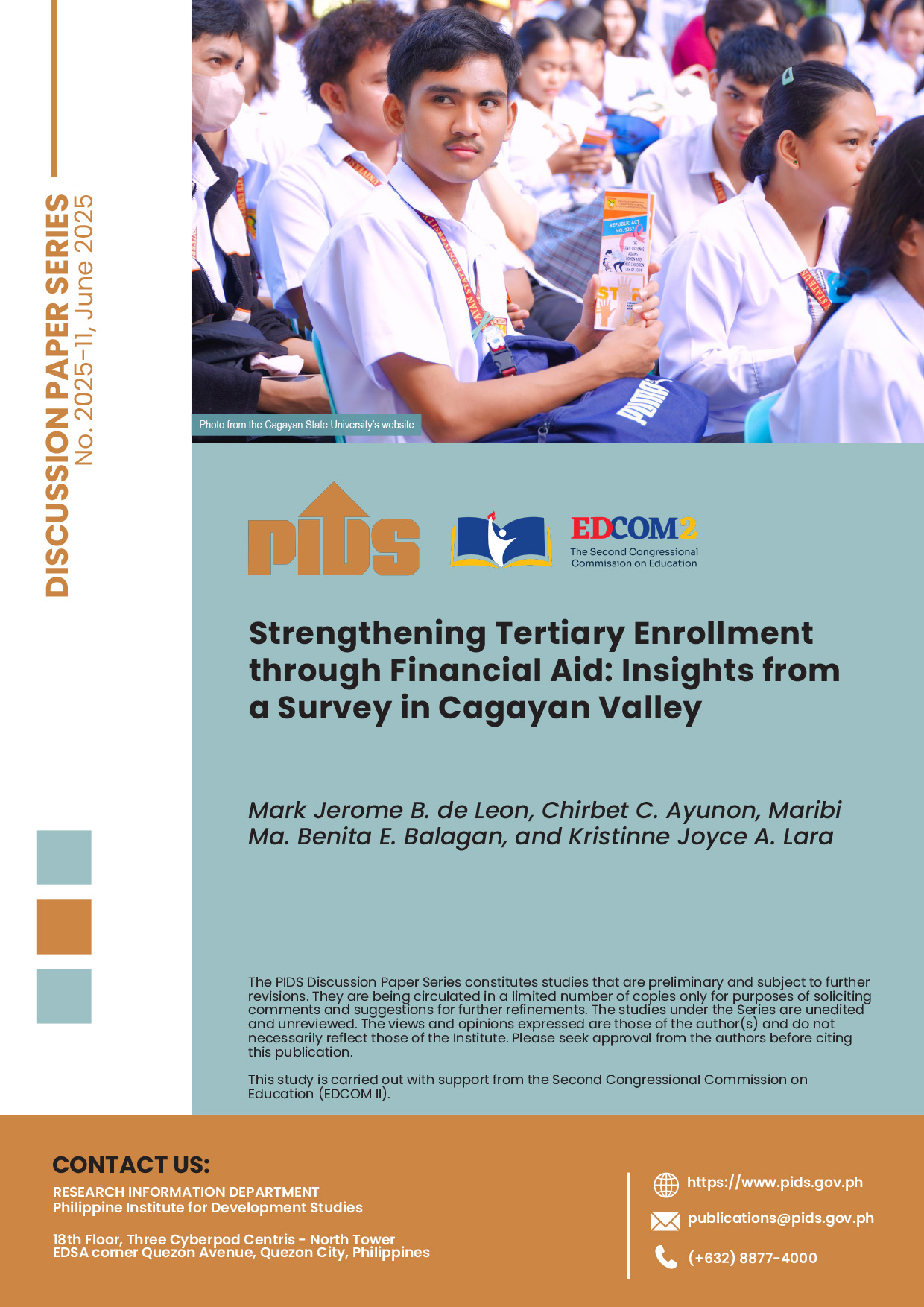The newly created Philippine Competition Commission (PCC) is using data analysis as a part of its decision-making process.
The commission intends to use existing research, task new research, and do its own data analysis in making informed decisions, Commissioner Stella Quimbo said in a statement.
The PCC will have a division dedicated to research, data collection, and analysis. It will also be responsible for maintaining a data bank, she said.
“We envision that our work will not be informed merely by mere anecdotes, just-so stories, or hearsay. We will rule based on indicators, measurement, corroborated facts, and unwavering adherence to justice, fairness, and rule of law,” Quimbo emphasized.
The PCC is a quasi-judicial body tasked to ensure a level-playing field for efficient market competition between and among businesses and all commercial economic activities, Part of its mandate is to protect the welfare of consumers and advance both domestic and international trade and economic development.
As such it may conduct inquiries as well as investigate and penalize all forms of anticompetitive agreements, abuse of dominant position, and anticompetitive mergers and acquisitions.
Quimbo said the PCC will start a review of specific industries after a systematic study, which will form the basis for any reviews in the future.
A “sound methodology” will be adopted to identify industries that will be reviewed, and search for sources of market empowerment traceable to government policies and regulations that have the unintended consequence of promoting anticompetitive behavior.
Quimbo cited the efforts of state think tank Philippine Institute for Development Studies (PIDS) to create a favorable intellectual and political climate through evidence-based research that is conducive to competition.
“We hope that PIDS and other research institutions would continue generating high-quality research that are either industry or sector specific or that would feed into the broader questions on how to craft a national competition policy,” she said.
The formulation of the Philippine Competition Act of 2015 or Republic Act 10667 is timely, Quimbo noted, as it focuses on prohibiting and penalizing anti-competitive agreements, abuse of dominant position, and anti-competitive mergers and acquisitions.
“While it took too long for this law to come to life, arguably, now is actually a good time to seriously implement such a law. With high gross domestic product growth rates in recent years, one way to ensure inclusivity of economic growth is by promoting the efficiency of markets through competition,” the commissioner said.
The law spurs further growth by promoting the entrepreneurial spirit, encouraging private investment and innovations, and sufficiently low prices and high-quality goods for the benefit of consumers.
“The spirit behind the law is not a narrow concept like increasing consumer surplus or ensuring that profits are not abnormally huge, but rather the broad idea of sustained economic growth and development through a vibrant business sector with a broader base of ownership, whose benefits are shared by all through job creation and ensured access to basic commodities,” Quimbo said.
PIDS President Gilberto Llanto noted the importance of having competition laws and strong institutional enforcers to help sustain economic growth.
For her part, Trade Assistant Secretary Rafaelita Aldaba said the PCC would help boost competition and rev up the manufacturing industry.
There is a great need to address competition issues in the services industry where a lot of market barriers still stand, she said.
“Liberalization is one of the necessary ingredients to enhance competition. And now that we have a Competition Commission, we can work together in pursuing necessary reforms needed for the country to participate in free trade agreements like the Trans-Pacific Partnership,” she added.//
The commission intends to use existing research, task new research, and do its own data analysis in making informed decisions, Commissioner Stella Quimbo said in a statement.
The PCC will have a division dedicated to research, data collection, and analysis. It will also be responsible for maintaining a data bank, she said.
“We envision that our work will not be informed merely by mere anecdotes, just-so stories, or hearsay. We will rule based on indicators, measurement, corroborated facts, and unwavering adherence to justice, fairness, and rule of law,” Quimbo emphasized.
The PCC is a quasi-judicial body tasked to ensure a level-playing field for efficient market competition between and among businesses and all commercial economic activities, Part of its mandate is to protect the welfare of consumers and advance both domestic and international trade and economic development.
As such it may conduct inquiries as well as investigate and penalize all forms of anticompetitive agreements, abuse of dominant position, and anticompetitive mergers and acquisitions.
Quimbo said the PCC will start a review of specific industries after a systematic study, which will form the basis for any reviews in the future.
A “sound methodology” will be adopted to identify industries that will be reviewed, and search for sources of market empowerment traceable to government policies and regulations that have the unintended consequence of promoting anticompetitive behavior.
Quimbo cited the efforts of state think tank Philippine Institute for Development Studies (PIDS) to create a favorable intellectual and political climate through evidence-based research that is conducive to competition.
“We hope that PIDS and other research institutions would continue generating high-quality research that are either industry or sector specific or that would feed into the broader questions on how to craft a national competition policy,” she said.
The formulation of the Philippine Competition Act of 2015 or Republic Act 10667 is timely, Quimbo noted, as it focuses on prohibiting and penalizing anti-competitive agreements, abuse of dominant position, and anti-competitive mergers and acquisitions.
“While it took too long for this law to come to life, arguably, now is actually a good time to seriously implement such a law. With high gross domestic product growth rates in recent years, one way to ensure inclusivity of economic growth is by promoting the efficiency of markets through competition,” the commissioner said.
The law spurs further growth by promoting the entrepreneurial spirit, encouraging private investment and innovations, and sufficiently low prices and high-quality goods for the benefit of consumers.
“The spirit behind the law is not a narrow concept like increasing consumer surplus or ensuring that profits are not abnormally huge, but rather the broad idea of sustained economic growth and development through a vibrant business sector with a broader base of ownership, whose benefits are shared by all through job creation and ensured access to basic commodities,” Quimbo said.
PIDS President Gilberto Llanto noted the importance of having competition laws and strong institutional enforcers to help sustain economic growth.
For her part, Trade Assistant Secretary Rafaelita Aldaba said the PCC would help boost competition and rev up the manufacturing industry.
There is a great need to address competition issues in the services industry where a lot of market barriers still stand, she said.
“Liberalization is one of the necessary ingredients to enhance competition. And now that we have a Competition Commission, we can work together in pursuing necessary reforms needed for the country to participate in free trade agreements like the Trans-Pacific Partnership,” she added.//












